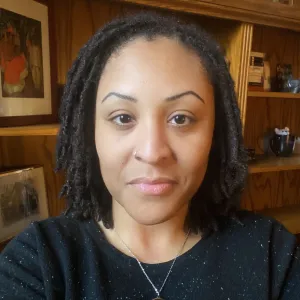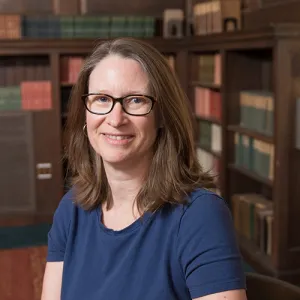
Sociology
Sociologists at Smith study the dynamics of human interaction and the ways in which people are organized into groups of all sizes, characteristics and purposes. By examining such topics as community, social class, race and ethnicity, family, sex roles and popular culture, students come to understand more fully their own experiences and the society in which they live. Students also learn to conduct social research, first in methods courses that teach basic quantitative and qualitative research skills, and then by undertaking research with faculty assistance. Students are also encouraged to spend their junior year studying abroad.
Requirements & Courses
Goals for Majors in Sociology
As a department, the main learning goals that we have for students are that they develop both critical sociological analysis and research skills. By “critical thinking skills” we mean that: a) students should be introduced to the sociological perspective and develop what C. Wright Mills called the “sociological imagination,” a critical faculty permitting one to connect personal experience with larger social and historical forces, and by “making the familiar strange,” or rendering problematic those habits and social rituals that seem “natural”; b) we want students to read, understand and learn to employ sociological theories; and c) we expect students to develop in-depth understanding of specific social phenomena in course electives that cover specific areas of sociological thinking, practice and analysis.
The research skills we want students to learn include: a) introducing them to different sociological methods and their application to theoretical and empirical questions; b) understanding introductory statistics and use of statistical software; c) becoming proficient in both quantitative research methods (by designing and implementing a survey questionnaire, and by carrying out basic statistical analysis of survey data) and qualitative research methods (by learning to conduct participant observation, focus groups, in-depth interviewing, discourse analysis and visual analysis); and d) developing the skills to evaluate and critique social research.
Sociology Major
Requirements
Eleven semester courses
- Basis: SOC 101
- SOC 203, SOC 204 and SOC 250, normally taken in the sophomore or junior year
- Four courses at the 200 or 300 level
- Two electives in sociology or in related fields with approval of the major adviser
- One 300-level SOC seminar taken at Smith during the senior year
- Normally, majors may not take SOC 203, SOC 204, SOC 250 or their senior seminar S/U.
- The department will permit SOC 101 and up to four upper-level transfer courses from outside the Five Colleges to be used toward major requirements.
Honors
Please consult the director of honors or the departmental website for specific requirements and application procedures.
Requirements
- Eleven major requirements
- Thesis: SOC 430D written during two semesters
- Oral examination on the thesis
Sociology Minor
Requirements
Six semester courses
- SOC 101
- SOC 250
- SOC 203 or SOC 204
- Three additional courses at the 200 or 300 level
Two of the six courses required for the minor may be taken outside of Smith College.
Courses
SOC 101 Introduction to Sociology (4 Credits)
Perspectives on society, culture and social interaction. Topics may include the self, emotions, culture, community, class, race and ethnicity, family, gender and economy. Restrictions: first-years and sophomores only. Open to juniors and seniors with permission of the course director. Enrollment limited to 30. Social Science
Fall, Spring
SOC 203 Qualitative Methods (4 Credits)
Qualitative research methods offer a means of gaining insight and understanding into complex perspectives held by people about social practices and social phenomena. Whereas good quantitative research captures scale, good qualitative research reaches the depth of perceptions, views, experiences, behaviors and beliefs. Qualitative research deals with meanings; it seeks to understand not just what people do, but why they choose to do what they do. This course provides students with a theoretical as well as practical grounding in qualitative research including research ethics, research design, practicalities in research, research techniques, data analysis, and theorizing and dissemination of research findings. Prerequisite: SOC 101. Enrollment limited to 35. Social Science
Spring
SOC 204 Statistics and Quantitative Research Methods for Sociology (5 Credits)
This project-based course covers the study of statistics for the analysis of sociological data and the study of methods for quantitative sociological research more generally. Topics in statistics include descriptive statistics, probability theory, correlation, deduction and induction, error and bias, confidence intervals and simple linear regression. Topics in research methods include positivism, research design, measurement, sampling methods and survey design. All students participate in a lab which emphasizes the use of computer software to analyze real data. Students design and complete a survey research project over the course of the semester. Prerequisite: SOC 101. Restrictions: Students do not normally earn credit for more than one course on this list: ECO 220, GOV 203, MTH 220, PSY 201, SDS 201, SDS 210, SDS 220 or SOC 204. Enrollment limited to 40. Social Science; Mathematics
Fall
SOC 212 Class and Society (4 Credits)
An introduction to classical and contemporary approaches to class relations, status and social inequality. Topics include contemporary Marxian and Weberian approaches to class; the practice of social mobility in ideology and in social reality, class-consciousness, the social reproduction of class structures and the ways that racial and gender divisions intersect with class relations. Particular attention to the class experience in cultural, social psychological and economic terms within contemporary U.S. society. Prerequisite: SOC 101. Enrollment limited to 35. Social Science
Fall, Spring, Alternate Years
SOC 216 Social Movements (4 Credits)
This course provides an in-depth examination of major sociological theories of collective action and social movements. Emphasis is placed on the analysis of social movement dynamics including recruitment and mobilization, strategies and tactic, and movement outcomes. The empirical emphasis is on modern American social movements including student protest, feminist, civil rights and sexual identity movements. Prerequisite: SOC 101. Enrollment limited to 35. Social Science
Fall, Spring, Annually
SOC 226 Sociological Perspectives on Power and Privilege in American Education (4 Credits)
This course examines the institution of education from a sociological perspective, exploring issues of power and privilege, relationships between education and other social institutions, and the varying purposes of education in society. A recurring theme throughout the course is meritocracy. We consider how merit is defined in education, factors that affect who succeeds in the educational system and whether meritocratic education is a viable goal. Course readings include current empirical research in the sociology of education and both classical and contemporary sociological theories of education. Prerequisite: SOC 101. Enrollment limited to 35. Social Science
Fall, Spring, Annually
SOC 227 Urban America: From Global Cities to Small Towns (4 Credits)
Many Americans’ identities and daily lives are strongly tied to urban spaces. This course uses approaches from new urban sociology to conceptualize relationships among the state, economy, and urban form. The course connects macro-level processes--including global forces, politics, and economy-- to micro-level daily life, such as social interactions among city dwellers in both global cities and small towns. This course underscores global and transnational perspectives. From immigrants and refugees who bring their own culture to the presence of global and transnational corporations, most U.S. cities are global entities, and urban lives are intricately tied to globalization and transnational practices. Prerequisite: SOC 101. Enrollment limited to 35. Social Science
Fall, Spring, Variable
SOC 229 Sex and Gender in American Society (4 Credits)
An examination of the ways in which the social system creates, maintains and reproduces gender dichotomies with specific attention to the significance of gender in interaction, culture and a number of institutional contexts, including work, politics, families and sexuality. Prerequisite: SOC 101. Enrollment limited to 35. Social Science
Fall, Spring, Annually
SOC 230 Sociology of Food (4 Credits)
Using theoretical frameworks from environmental sociology, political and economic sociology, and sociology of culture, this course examines how social structures shape the way food is produced, prepared and consumed. This course investigates political and environmental dynamics that structure food systems and practices and considers inequalities related to food at the local and global levels. Finally, students explore food movements and investigate ideas for creating more equitable and sustainable practices. Prerequisite: SOC 101. Enrollment limited to 35. Social Science
Fall, Spring, Alternate Years
SOC 232 World Population (4 Credits)
This course introduces students to environmental, economic, feminist and nationalist perspectives on population growth and decline. The course examines current population trends and processes (fertility, mortality and migration) and considers the social, political, economic and environmental implications of those trends. The course also provides an overview of various sources of demographic data as well as basic demographic methods. Prerequisite: SOC 101. Enrollment limited to 35. Social Science
Fall, Spring, Alternate Years
SOC 233 Sociology of Climate Change (4 Credits)
The effects of climate change put great strain on societies, testing the very structures that organize people’s lives and livelihoods. Using sociological frameworks and theories of globalization, inequality, intersectionality, science and technology, policy, migration, sustainability, environmental justice, social movements, and human rights, this course will examine the social, political, and economic impacts of climate change, as well as the ways that local and global groups prepare, mitigate, deny, adapt to, and organize in the face of climate change and its impacts. Prerequisite: SOC 101.Enrollment limited to 35. Social Science
Fall, Spring, Alternate Years
SOC 236 Beyond Borders: The New Global Political Economy (4 Credits)
This course introduces students to the basic concepts and theories in global political economy. It covers the history of economic restructuring, global division of labor, development, North-South state relations, and modes of resistance from a transnational and feminist perspective. Issues central to migration, borders and security, health, and the environment are central to the course. Prerequisite: SOC 101. Enrollment limited to 35. Social Science
Fall, Spring, Annually
SOC 237 Gender and Globalization (4 Credits)
This course engages with the various dimensions of globalization through the lens of gender, race, and class relations. It studies how gender and race intersect in global manufacturing and supply chains as well as in the transnational politics of representation and access in global media, culture, consumption, fashion, food, water, war, and dissenting voices. Prerequisite: SOC 101. Enrollment limited to 25. Social Science
Fall, Spring, Annually
SOC 241 Race, Empire and Discipline (4 Credits)
This course explores the role of the state in the creation of both race and discipline as it exists in the contemporary U.S. Students begin to understand how these apparatuses allow for the creation and expansion of the U.S. empire. In particular, the course looks at the racialization of Muslims to see how race, discipline and empire are all collective processes and have clear examples of how these processes play out. Students look at how discipline itself is racialized and creates the scaffolding for expanding U.S. empire and then they imagine an alternative world, one without racialized discipline and U.S. empire. Prerequisite: SOC 101. Enrollment limited to 35. (E) Social Science
Fall, Spring, Variable
SOC 242 The Contemporary Asian American Experience: Honorary White or Forever Foreigners? (4 Credits)
Since the 19th century, Asian Americans have been perceived as mysterious and threatening foreign beings—"yellow perils." At the same time, however, they have also been portrayed as exemplars of highachieving, successful minorities, with aspirations for higher education and hard work. How can ethnic minorities be perceived simultaneously as "model minorities" while still being viewed as "forever foreigners?" This class examines how Asian America is defined and formed, and why understandings of Asian Americans have evolved over time. Major themes include the model minority myth, media portrayals, gender, family, adoption, U.S. militarism, violence, interracial conflicts, food, and consumption. Prerequisite: SOC 101. Enrollment limited to 35. Social Science
Fall, Spring, Annually
SOC 243 Race, Gender and Mass Incarceration (4 Credits)
This course introduces students to the historical roots of mass incarceration and how it shapes multiple aspects of life and society. Students focus on the particular experiences of currently and formerly incarcerated women, with an emphasis on the overrepresentation of Black women; the major social, political and economic factors that have contributed to the rise of mass incarceration in the United States; the primary ways mass incarceration alters the lives of people and communities; and why eliminating racial oppression cannot be disentangled from eliminating mass incarceration. Prerequisite: SOC 101. Enrollment limited to 35. Social Science
Fall, Spring, Annually
SOC 246 Colloquium: The Sociological Imagination (4 Credits)
According to C.W. Mills, the "sociological imagination" allows us "to grasp history and biography and the relations between the two within society." This course helps students develop their sociological imaginations by reading memoirs written by both U.S. and international authors who’ve published in English, and asking sociological questions of the stories being told. The course moves beyond appreciation for the "troubles [that] occur within the character of the individual and within the range of [their] immediate relations with others" to a recognition and analysis of social facts, geo-political issues and social problems illuminated through these individual stories. Prerequisite: SOC 101. Enrollment limited to 20. WI Social Science; Historical Studies
Fall, Spring, Alternate Years
SOC 250 Theories of Society (4 Credits)
This course introduces majors to widely used theoretical perspectives that inform the sociological imagination. It focuses on how these perspectives analyze core facets of social life, such as structure and stratification, power and inequality, culture, agency, self and identity. Each topic is surveyed from several major perspectives, providing a comparative view so that students can make assessments of the insights each theory offers. Priority given to Sociology majors and minors. Prerequisite: SOC 101. Enrollment limited to 40. Social Science
Fall
SOC 253 Sociology of Sexuality: Institutions, Identities and Cultures (4 Credits)
This course examines sexuality from a sociological perspective, focusing on how sexuality is constructed by and structures major social institutions. The course examines the social construction of individual and collective identities, norms and behaviors, discourses, institutional regulation, and the place of sexuality in the state, education, science and other institutions, and social movements. Consideration of gender, race, class, time, and place are integrated throughout. Discussions include the social construction of sexual desire and practice, sexuality and labor, reproduction, science, technology, sexuality and the state, sexuality education, globalization, commodification, and social movements for sexual purity, sexual freedom, and against sexual violence. Prerequisite: SOC 101. Enrollment limited to 35. Social Science
Fall, Spring, Annually
SOC 255 Colloquium: The Bollywood Matinee (4 Credits)
This course engages the world of popular Indian cinema, Bollywood and beyond. We integrate scholarly articles on the subject, lectures, in-depth discussions, and of course, film screenings to explore the history and political economy of India and South Asia. Students analyze how this vital cultural form deals with the politics of gender, class, caste, religion and Indian nationalism. Our discussions simultaneously focus on the role of globalization, migration and the cultural significance of Indian characters on international media; for example, Raj in the popular American sitcom The Big Bang Theory. Students are expected to engage with the readings, bring their reflections and actively participate in class discussions. Prerequisite: SOC 101. Enrollment limited to 20.
Fall, Spring, Alternate Years
SOC 270 Media, Technology and Sociology (4 Credits)
The mass media are an important social institution that reflects and shapes norms and values. But the processes governing media production and reception are often taken for granted, immersed as society is in a highly mediated social world where preconceived notions about "the media" and its effects hold sway. This course challenges conventional wisdom about how media and communication technologies work by critically exploring the history of media institutions, assessing the media's powers of persuasion, focusing on media as an occupation, and examining the struggles over media representation by marginalized groups across traditional media and new digital platform. Prerequisite: SOC 101. Enrollment limited to 35. Social Science
Fall, Spring, Annually
SOC 275 Pandemic! A Sociology of Disease, Disaster, and Death (4 Credits)
This course is an attempt to make sense of the COVID- 19 pandemic using a variety of sociological perspectives and readings. It casts a wide intellectual net to help us understand the sociology of this pandemic, and of human societies’ relations to disease, disaster, and death more broadly. In this class, students are asked to analyze their own experiences with COVID, the mass media’s coverage of the virus, and the government’s response to it in critical, sociological writing using a number of different theoretical perspectives. Prerequisite: SOC 101. Social Science
Spring, Alternate Years
SOC 307 Seminar: The Racialization of Muslims (4 Credits)
This course takes a deep dive into the process and consequences of the racialization of Muslims. Although the course primarily uses racial formation as a framework for understanding the racialized nature of the experiences of Muslims, particularly after 9/11, the course explores other theoretical frameworks for making sense of the category of racialized Muslims. Discussions include: what racialization entails; the relationship between race and religion; race and Islam; Orientalist framings of Islam and Arabs; the War on Terror; and empire, gendered racialization and the comparative racialized experiences of Black Muslims. This course uses Muslims as a case study to explore larger questions about race, racialization and racial projects. Prerequisite: SOC 101. Restrictions: Juniors and seniors only. Enrollment limited to 12. Instructor permission required. (E) Social Science
Fall, Spring, Annually
SOC 312 Seminar: Women, Criminality and Punishment (4 Credits)
While research on what happens once formerly incarcerated women return to society has attracted more attention among scholars, activists and experts in corrections in recent years, women’s carceral experiences remain understudied. Therefore, this course centers the experiences of women and how gender shapes their experiences with crime and punishment. This course examines why women commit crimes, why feminist theoretical frameworks better inform our understanding of women’s experiences with crime, incarceration and reentry, the major challenges women face after incarceration and the lasting effects incarceration has on the lives of women. Prerequisite: SOC 101. Restrictions: Juniors and seniors only. Enrollment limited to 12. Instructor permission required.
Fall, Spring, Variable
SOC 317 Seminar: Inequality in Higher Education (4 Credits)
This course applies a sociological lens to understanding inequality in American higher education. The course examines how the conflicting purposes of higher education have led to a highly stratified system of colleges and universities. The course also addresses the question of how students’ social class, race, ethnicity and gender affect their chances of successfully navigating this stratified system of higher education. Finally, the course examines selected public policies aimed at minimizing inequality in students’ access to and success in college. Prerequisites: SOC 101. Restrictions: Juniors and seniors only. Enrollment limited to 12. Instructor permission required. Social Science
Fall, Spring, Alternate Years
SOC 320 Seminar: Sociology of the Arts (4 Credits)
Sociological perspectives on the arts in society, with particular attention to the fine arts (primarily painting), to literature and to theatre, among other forms of cultural expression. Theories of the place of art in society, the social context of artistic production and the social production of the artist, as well as sociological perspectives on the changing nature of arts institutions and audiences, and the social position and aesthetic disposition of the artist. Prerequisite: SOC 101. Restrictions: Juniors and seniors only. Enrollment limited to 12. Instructor permission required. Arts; Social Science
Fall, Spring, Alternate Years
SOC 322 Seminar: Ghettos and Ethnic Enclaves: Race, Ethnicity, and Immigration in Urban America (4 Credits)
This class explores the roles of communities in an era of globalization by focusing on ghettos and enclaves in U.S. cities. Immigrant communities and ethnic enclaves are often viewed as temporary platforms for assimilation, while ghettos are seen as inner-city neighborhoods marked by stigma, where minorities are trapped in cycles of poverty. Why are some minority neighborhoods seen in a positive light, while others are not? This course examines both micro-level interactions within these spaces and macro-level structural forces—such as migration, race and ethnicity, gender, economic restructuring, urban policies, redevelopment plans, slavery, colonialism, transnationalism, and globalization—that shape them. Prerequisite: SOC 101. Restrictions: Juniors and seniors only. Enrollment limited to 12. Instructor permission required. Social Science
Fall, Spring, Variable
SOC 323ct Seminar: Topics in Gender and Social Change-Gender, Sexuality and Social Movements in Conservative Times (4 Credits)
This class focuses on challenges to and changes in gender and sexuality during conservative time periods. Focusing on the U.S., the course primarily examines the 1980's and the contemporary period as case studies. The class looks at how political and other institutions affect gender and sexuality and at social movements addressing gender and sexuality from both the right and the left. The class also looks at movements including queer, feminist, anti-racist, anti-interventionist movements on the left and racial supremacist, pro-military intervention, anti-LGBT and conservative evangelical movements on the right. Theoretical frameworks are drawn from social movements, intersectional feminist and queer theories. Restrictions: Juniors and seniors only; SOC 323 may be repeated once with a different topic. Enrollment limited to 12. Instructor permission required. Social Science
Fall, Spring, Variable
SOC 325 Seminar: Sociology of Emotions (4 Credits)
Although emotions are often thought of as something universal, authentic and internal, careful study reveals that the conventions concerning emotional expression can change radically over time and vary tremendously from place to place. Emotions can thus be thought of as cultural constructs, determined as much by social norms as human nature. This course explores the roots of emotions like love, fear, anger, shame and empathy, and examines the social construction of mental health and illness. Restrictions: Juniors and seniors only. Enrollment limited to 12. Instructor permission required. Social Science
Fall, Spring, Alternate Years
SOC 327 Seminar: Global Migration in the 21st Century (4 Credits)
This course provides an in-depth engagement with global migration. It covers such areas as theories of migration, the significance of global political economy and state policies across the world in shaping migration patterns and immigrant identities. Questions about imperialism, post-colonial conditions, nation-building/national borders, citizenship and the gendered racialization of immigration intersect as critical contexts for our discussions. Prerequisite: SOC 101. Restrictions: Juniors and seniors only. Enrollment limited to 12. Instructor permission required. Social Science
Fall, Spring, Alternate Years
SOC 333 Seminar: Social Justice, the Environment and the Corporation (4 Credits)
Over the last century, the reach of corporations has gradually extended into all facets of life, yet most people rarely stop to think about the corporation as a social entity. This course focuses on the social, economic and legal foundations that both shape its power and provide a dominant logic for its actions. We examine the implications of corporate power and processes for communities, workers and the environment. We also focus on the ways that governments and various social groups have sought to change corporate assumptions and behaviors concerning their social and environmental responsibilities. Prerequisite: SOC 101. Restrictions: Juniors and seniors only. Enrollment limited to 12. Instructor permission required.
Fall, Spring, Alternate Years
SOC 340 Seminar: Sociological Writing for the Public (4 Credits)
How can social inequality be explained to the general public? Sociology provides a unique lens on race, class, gender, sexuality and other forms of inequality. In this class, students pull together what they have learned in their sociology classes and learn to communicate it to the general public. Students in this Calderwood seminar write a variety of pieces that bring sociological expertise to the public, such as summaries of research and data, book reviews, opinion pieces, blog posts and magazine articles. Students also hone their skills by reading and editing each other’s writing. This course is designed as a capstone course for sociology majors; sociology minors, students in related majors (other social sciences, SWG, AFR, etc.), or students with substantial sociology coursework are also welcome. Prerequisite: SOC 101. Restrictions: Juniors and seniors only. Enrollment limited to 12. Instructor permission required. WI Social Science
Fall, Spring, Alternate Years
SOC 341 Seminar: How (and Why) Do We Know What We Know? Power, Knowledge and Ignorance (4 Credits)
Can you name numerous pop stars? Can you identify bird songs? Are you able to explain Einstein’s contributions to questions of general relativity? What information and ideas are in our heads and how did they get there?! In this course, we will examine knowledge production, transmission and acquisition as social processes. We will similarly consider ignorance as socially produced. As we investigate ‘western’ and science-based understandings, indigenous knowledge systems, and religious worldviews, we will ask what economic and/or cultural forces shape what is 'known' and what types of knowledge are produced and privileged. Is knowledge meant to help us better understand and perhaps improve the human condition? Is it intended to create new products and generate profits? Finally, what are the implications of new forms of knowledge production such as generative artificial intelligence? Prerequisite: SOC 101. Restrictions: Juniors and seniors only. Enrollment limited to 12. Instructor permission required. Social Science
Fall, Alternate Years
SOC 400 Special Studies (1-4 Credits)
For junior and senior majors. Instructor permission required.
Fall, Spring
SOC 430D Honors Project (4 Credits)
This is a full year course. 8 credits for the full-year course; 4 per semester. Department permission required.
Fall, Spring
SOC 431 Honors Project (8 Credits)
Department permission required.
Fall, Spring
SOC 432D Honors Project (6 Credits)
Prerequisites: SOC 101; SOC 250, SOC 201, either SOC 202 or SOC 203, four courses at the 200 or 300 level, and a senior seminar most appropriate to the thesis research. This course includes an oral examination on the thesis. Department permission required.
Fall, Spring
AFR 214 Black Europe (4 Credits)
This course examines the social and historical construction of blackness in Europe with particular attention to the impact of European colonialism, racist ideology and antiblack policies on the experiences of people of African descent. Topics of inquiry include: What is the relationship between the Black Mediterranean, the Black Atlantic and Black Europe? How have transnational migrations, political transformations and intellectual exchange shaped African diasporic identities, activism and cultural productions in Europe? Meditations are informed by accounts of Black life in European narratives and media as well as interdisciplinary scholarship in Black Studies, Sociology, History and Cultural Studies. Arts; Social Science; Historical Studies
Fall, Spring, Annually
AFR 289 Colloquium: Race, Feminism and Resistance in Movements for Social Change (4 Credits)
This interdisciplinary course explores the historical and theoretical perspectives of African American women from the time of slavery to the post-civil rights era. A central concern of the course is the examination of how black women shaped and were shaped by the intersectionality of race, gender and sexuality in American culture. Restrictions: Not open to first-years. Enrollment limited to 25. Historical Studies
Fall, Spring, Variable
LAS 244/ SOC 244 Feminisms and Women's Movements: Latin American Women's and Latinas' Pursuit of Social Justice (4 Credits)
Offered as SOC 244 and LAS 244. This course is designed to familiarize students with the history of Latin American and Latina (primarily Chicana) feminist thought and activism. A central goal of the course is to provide an understanding of the relationship between feminist thought, women’s movements, and local/national contexts and conditions. The writings of Latin American and Latina feminists comprise the majority of the texts. The course is limited to the work of those who write and publish in English; students who are proficient in Spanish or Portuguese have an opportunity to read feminist materials in those languages. Prerequisites: SOC 101, LAS 100 or SWG 150. Enrollment limited to 35. Social Science; Historical Studies
Fall, Spring, Variable
SOC 227 Urban America: From Global Cities to Small Towns (4 Credits)
Many Americans’ identities and daily lives are strongly tied to urban spaces. This course uses approaches from new urban sociology to conceptualize relationships among the state, economy, and urban form. The course connects macro-level processes--including global forces, politics, and economy-- to micro-level daily life, such as social interactions among city dwellers in both global cities and small towns. This course underscores global and transnational perspectives. From immigrants and refugees who bring their own culture to the presence of global and transnational corporations, most U.S. cities are global entities, and urban lives are intricately tied to globalization and transnational practices. Prerequisite: SOC 101. Enrollment limited to 35. Social Science
Fall, Spring, Variable
Additional Programmatic Information
The honors program allows students with a strong academic background to devote a substantial portion of their senior year's course work to an independent and original research project that will result in a thesis. Eligible students should apply in the spring of their junior year. (January graduates are on a different schedule.) Honors is a yearlong course (430D for 8 credits) taken over both semesters of the senior year.
Information and Honors Application
- At least a 3.5 grade point average (GPA) through the junior year in all courses in the major
- At least a 3.3 grade point average (GPA) through the junior year in all courses outside the major
- At least one course related to the area of the thesis
- Completion of 250 and either 204 or 203 by the end of the junior year
- Completion of 6 SOC courses by the end of the junior year
- Approval of the sociology department
A student applying to a departmental honors program must certify in a letter, as part of the honors application, that she has not been sanctioned by the Academic Integrity Board at a serious level (1/3 step grade reduction or more). As with Latin Honors, sanctions imposed in the first year are excluded; a student is only debarred from honors for serious violations in the sophomore, junior and senior year. Students already enrolled in an honors project who incur a sanction during the senior year must convert their honors project to a special studies. The certification letter should be submitted directly to the senior class dean, either in hard copy to College Hall 101 or by email to honors@smith.edu. The template for the certification letter can be found on the Class Deans website.
Options and Credits for Honors Project Courses
Honors theses in sociology are yearlong, 8-credit courses (4 credits per semester). Students doing honors may not count courses from related fields toward the major; they must complete at least 9 SOC courses (including 101) in addition to the honors thesis. Occasionally, a student undertaking a yearlong special studies may, with her adviser's support, apply to retroactively convert the special studies to an honors thesis.
Course/Credit Load
Candidates for departmental honors must carry a minimum course load (12 credits) in each semester of the senior year (Ada Comstock Scholars should see the dean for Ada Comstock Scholars regarding credit load). Any variation in the credit distribution described above must be approved by the Subcommittee on Honors and Inependent Programs.
Application Procedure
A prospective applicant meeting the qualifications for the honors program should consult no later than the second semester of her junior year with a faculty member in the sociology department who is willing to serve as her thesis adviser. The job of the thesis adviser is to supervise the planning, research, writing, and evaluation of the thesis. The thesis adviser must be a member of the Smith faculty in sociology; faculty in other departments or at other Five College institutions may serve only as second readers. Because the adviser and candidate will work closely together throughout the duration of the program, a student must make sure that her adviser will not be on leave or on sabbatical during the relevant semesters. The thesis topic should be related to the area of expertise of the thesis adviser. Normally, any sociology faculty member may only direct one honors thesis per year. The student should also choose a second reader, who may be either a member of the sociology faculty, a faculty member at one of the other Five College institutions, or a faculty member in another department at Smith. The applicant must also meet with the director of honors for the sociology department, to review procedures for applying to the honors program.
The thesis proposal and IRB proposal, where relevant, should be submitted to the Department of Sociology by May 1 of the student's junior year. Most sociology honors theses require data collection, which in many cases must occur during the junior year or the summer before the senior year. Therefore, final approval of admission to the sociology honors program is contingent on successful achievement of any summer plans related to the thesis. Final college decisions about admission to the departmental honors program are made after grades from spring semester are recorded. The application process consists of several steps on the student's part:
- Request via email to honors@smith.edu a "Calculation of GPA Requirements Form." Please include your ID number with the request.
- Calculate, with the thesis adviser, the separate grade point averages (GPAs) inside and outside the major for all courses on the form. Instructions on how to calculate will be sent together with the calculation form.
- Submit to the director of honors in the sociology department (and subsequently to the Subcommittee on Honors and Independent Programs) a thesis proposal consisting of approximately four to five pages containing:
- A description of the scholarly issue to be investigated and a brief review of the relevant scholarly literature
- The specific research questions
- An explanation of the proposed theoretical framework and methodology and evidence of experience with this methodology
- Documentation of relevant background, preparation, special facility or skills necessary to undertake the proposed thesis (e.g., previous course work related to the thesis topic, quantitative skills, foreign language ability, etc.)
- A working bibliography of all significant sources
- Application for approval from the Smith IRB, if applicable
- Obtain the signature of the thesis adviser on the application.
- Submit the completed application plus any request for funding from the Nancy Kershaw Tomlinson Memorial Fund to the director of honors in the major department or program prior to the last meeting of the department or program for the semester in which you are applying. Normally, the sociology deadline is May 1 of your senior year.
- Submit your certification letter directly to the senior class dean by mail to College Hall 101 or by email to honors@smith.edu. Submit the completed application and Calculation of GPA Requirements Form, plus any request for funding from the Nancy Kershaw Tomlinson Fund.
Nancy Kershaw Tomlinson Memorial Fund
The Tomlinson Fund assists in providing essential expenses of students in carrying out their honors projects. Guidelines, Reimbursement form, Travel Budget form and Supplies & Equipment Budget forms are available on the Class Dean's website.
Required Project Research Appointment
Each student accepted into the departmental honors program must arrange for a research appointment with a reference librarian or archivist at one of the Smith libraries. The purpose of this session is to prepare the student for locating, obtaining, evaluating and correctly documenting all relevant sources needed for a successful project. These skills are necessary even if some research has already been conducted. The content of each meeting is tailored to the student’s topic and presents an opportunity for the student to ask specific questions about the proposed research process as well as a chance to develop expertise in using the most relevant databases, websites, or other vital research tools.
This hourlong meeting must be scheduled by mid-October at the latest, but it should be made as early as possible so that the student can take full advantage of the print and electronic resources to be demonstrated. Since the librarian or archivist will need some time to research each project topic, expect that the scheduling process will take a few days. To schedule a research appointment, make an online request.
The final decision regarding admission to the departmental honors program rests with the Subcommittee on Honors and Independent Programs.
Requirements of Students Admitted to the Honors Program
Students will work closely with their adviser in collecting data and writing the thesis. Normally, a draft of the full thesis should be submitted to the adviser and second reader no later than March 1.
Following submission of the final thesis, students will present their work in a public presentation attended by members of the sociology faculty and students. This presentation should cover the theoretical arguments and empirical findings of the thesis. Following the presentation, the student will address questions from the audience. Members of the sociology faculty may also ask questions of the student in an extended period after the presentation.
The following courses require either field work or field research:
- SOC 203 Qualitative Methods
- SOC 315 Practicum in Community-Based Research
SOC 214 and SOC 315 include community-based learning and research. Some sections of SOC 101 Introductory Sociology encourages field work or field research. There are also opportunities for group field work in SOC 216 Social Movements.
Students wishing to pursue individualized study in their junior or senior years on campus may enroll in a Special Studies tutorial (SOC 404 or 408). A student must secure the agreement of a faculty member to supervise a particular project prior to enrolling for a Special Studies. Normally, students should propose a special studies no later than the pre-registration period for the semester in which the special studies will occur. Examples of the kinds of work done in Special Studies tutorials include:
- In-depth reading in an area not covered in another course
- The execution of a research proposal developed in another course (either library research or empirical research)
- Other options, to be negotiated between the student and a particular faculty member
Faculty
Emeriti
Rick Fantasia
Barbara Richmond 1940 Professor Emeritus in the Social Sciences and Professor Emeritus of Sociology
Patricia Miller
Associate Professor Emerita of Sociology
Peter I. Rose
Sophia Smith Professor Emeritus of Sociology and Anthropology
In Memoriam
Marc Steinberg
Sydenham C. Parsons Professor of Sociology
Myron Peretz Glazer
Barbara Richmond 1940 Professor Emeritus in the Social Sciences (Sociology)
Opportunities
Study Abroad
Resources
Smith College Resources
Contact Department of Sociology
Wright Hall 225
Smith College
Northampton, MA 01063
Phone: 413-585-3503 Email: koheneacheampong@smith.edu
Administrative Coordinator:
Karikari Ohene Acheampong
Individual appointments can be arranged directly with the faculty.








